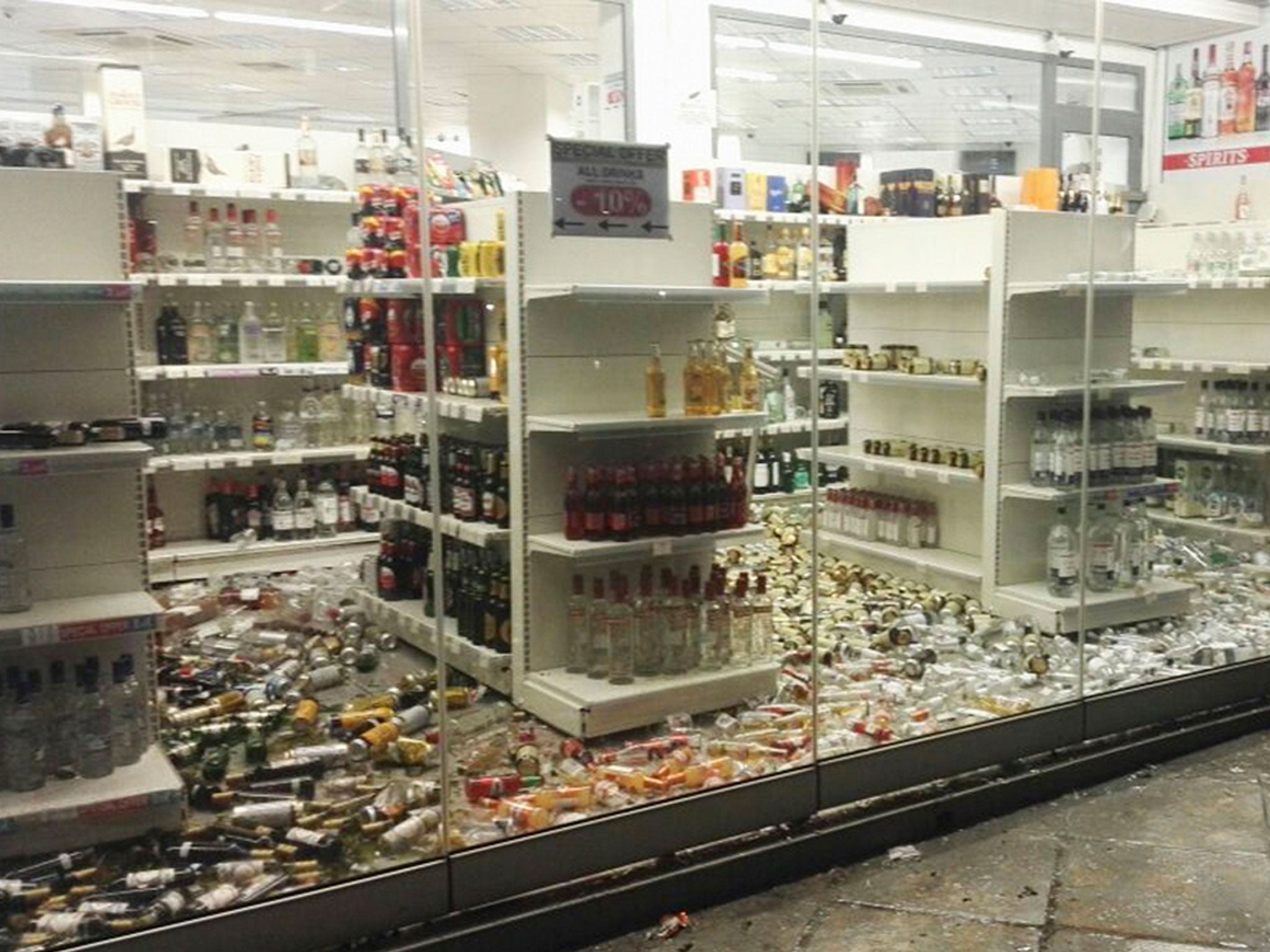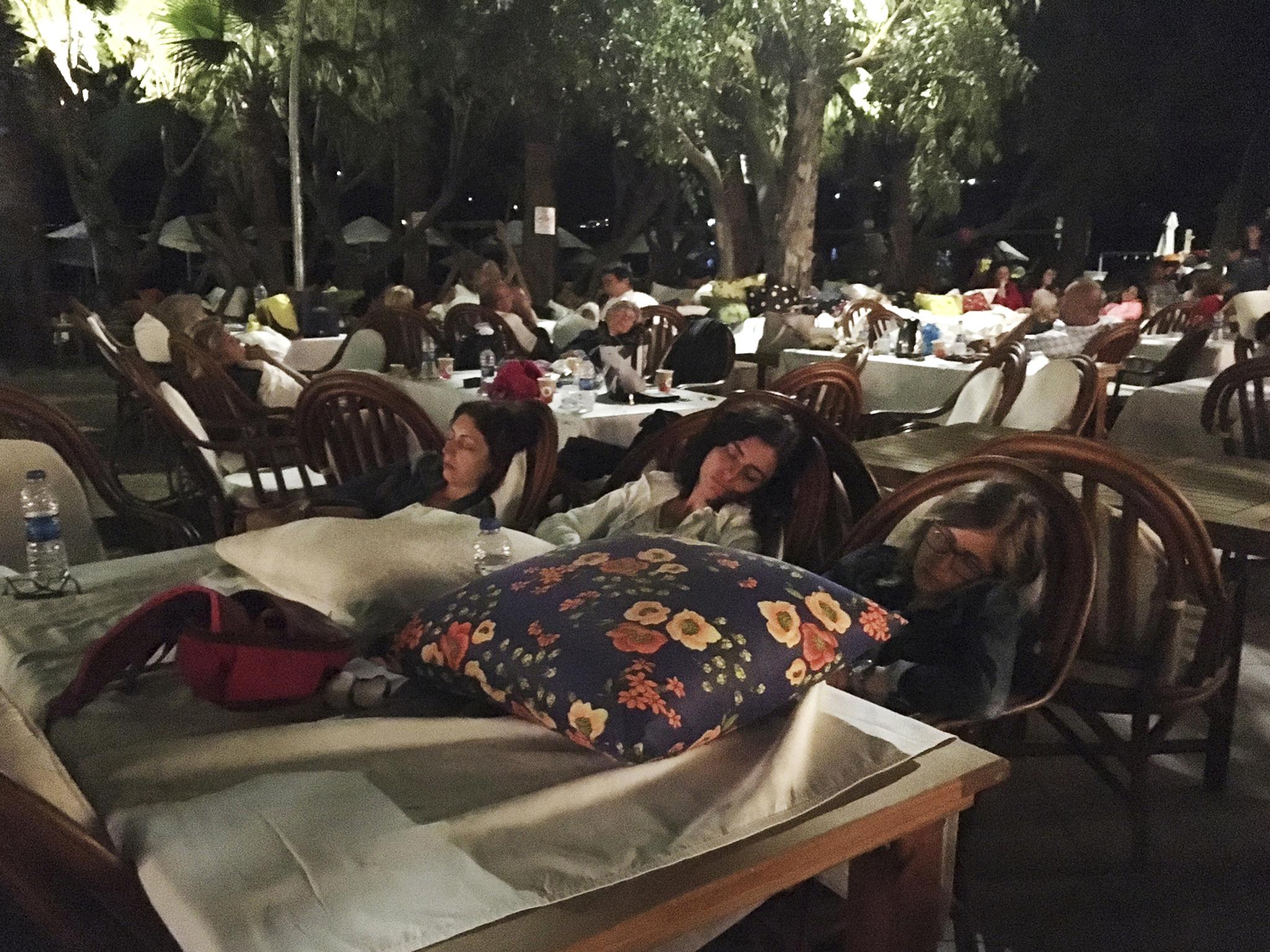Earthquake sparks tsunami off Greek islands and Turkey: Turkish and Swedish victims dead and hundreds injured
Tsunami floods parts Kos after an earthquake measuring 6.5 on the Richter scale
Your support helps us to tell the story
From reproductive rights to climate change to Big Tech, The Independent is on the ground when the story is developing. Whether it's investigating the financials of Elon Musk's pro-Trump PAC or producing our latest documentary, 'The A Word', which shines a light on the American women fighting for reproductive rights, we know how important it is to parse out the facts from the messaging.
At such a critical moment in US history, we need reporters on the ground. Your donation allows us to keep sending journalists to speak to both sides of the story.
The Independent is trusted by Americans across the entire political spectrum. And unlike many other quality news outlets, we choose not to lock Americans out of our reporting and analysis with paywalls. We believe quality journalism should be available to everyone, paid for by those who can afford it.
Your support makes all the difference.Two people have been killed, and more than 200 injured, after a powerful earthquake struck off the coast of Greek islands and Turkey, triggering a tsunami.
Greek authorities confirmed the victims of the 6.5-magnitude quake, both men, were from Turkey and Sweden.
The quake struck at around 1am local time on Friday morning, rattling the Greek holiday resort of Kos, damaging buildings and the main port. A small tsunami flooded parts of the island as well as the Turkish town of Bodrum.
At least 160 aftershocks have since been recorded, some measuring as strong as 4.8 on the Richter scale, with a warning that they are likely to continue for two more weeks – but without causing further damage or danger to people in the area.
The island’s regional governor said the “main priority at the moment is saving lives,” with at least 20 people in hospital with serious injuries.
Greek health officials said 13 people – including a Norweigian tourist – had been airlifted to hospitals in Athens and on the islands of Rhodes and Crete following the earthquake.
A hospital in the Cretan city of Iraklio is treating four patients including one with a critical head injury and one who needed a leg amputation. More than 120 people were wounded on Kos while a further 70 people suffered injuries in Bodrum.
Officials named the Turkish victim as Sinan Kurdoglu. The Swedish victim’s name has not been released.
While other islands and Turkey’s Aegean coast were hit, Kos bore the brunt of the quake as it was nearest to the epicentre, with all of the deaths and injuries reported there.
Fallen bricks and other debris coated many streets, and the island’s seafront road.
A statement from the travel trade association Abta said Kos Airport has reopened following a brief closure on Friday morning. The organisation also urged holiday makers to contact their travel company for updates.
“Tour operators are working alongside the local authorities to assess the damage, and will make arrangements to move customers should structural damage be found to their accommodation,” it said.
Giorgos Hadjimarkos, regional governor, said four or five of the injuries were “worrying” and damaged buildings were being inspected. The Kos hospital said at least 20 of the injured had broken bones.
A wall collapsed on a building dating to the 1930s, crushing people who were at the bar in the building’s lower level, according to Kos Mayor Giorgos Kyritsis.
Kos’s “old town” area was littered with broken stone in the streets. Hotels had shattered glass and other damage, leaving hundreds of tourists to spend the rest of the night sleeping on beach loungers.
“There was banging. There was shaking. The light was swinging, banging on the ceiling, crockery falling out of the cupboards,” said Christopher Hackland from Edinburgh, who is a scuba instructor on Kos.
“There was a lot of screaming and crying and hysterics coming from the hotel.”

Authorities had given advance warning of a tsunami, and witnesses described a “swelling” of the sea after the earthquake.
A seafront road and parts of the island’s main town were flooded, and the rising seawater pushed a boat onto the main road, causing several cars to slam into each other.
Ferry services were cancelled until daylight because Kos’s main port was damaged, and at least one ferry en route to the port was unable to dock. Other buildings damaged included an old mosque where a minaret collapsed and a 14th-century fortress at the entrance to the main port.
Rescuers were checking for trapped people inside houses after the quake struck in the middle of the night and were heading to outlying villages to check for damage.

Greek officials said aftershocks that struck were weaker but still could put at risk the buildings that were already damaged. The epicentre was 6 miles south of Bodrum, Turkey, and 10 miles east-northeast of Kos at a depth of six miles.
In Turkey, the ensuing panic caused minor injuries, according to Esengul Civelek, governor of Mugla province.
Greece and Turkey lie in an especially earthquake-prone zone.
Subscribe to Independent Premium to bookmark this article
Want to bookmark your favourite articles and stories to read or reference later? Start your Independent Premium subscription today.

Join our commenting forum
Join thought-provoking conversations, follow other Independent readers and see their replies
Comments